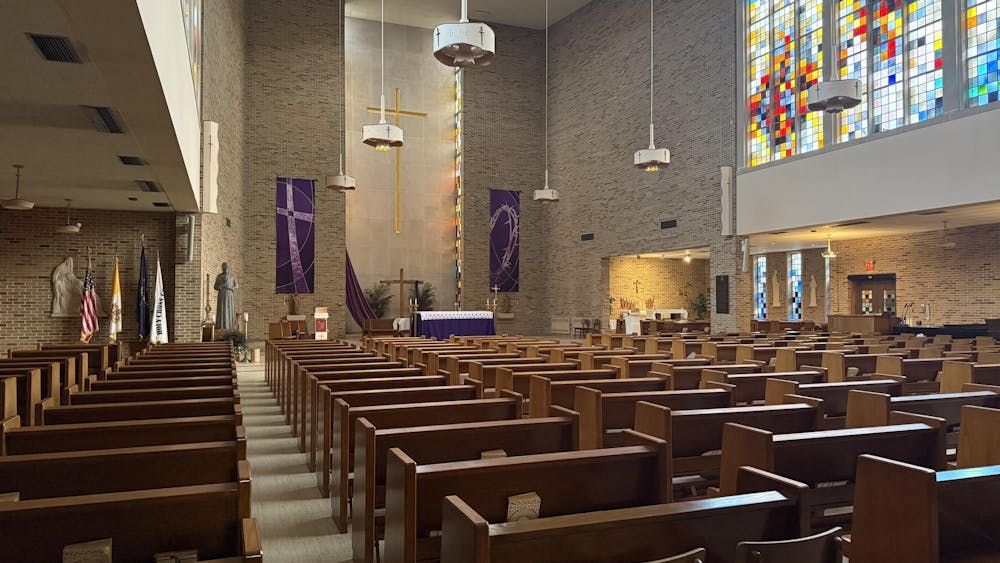As arts and humanities encounter the digital age, their intersection remains a hot topic among literary scholars. In a Saturday lecture titled “What’s all the Fuss about the Digital Humanities?,” assistant professor of English Matthew Wilkens explored this junction and the ramifications of technological advancement in literary scholarship.
The lecture, the penultimate installment of the Snite Museum's Saturday Scholars series, explored the emerging field of digital humanities, an area of research that uses technological tools to investigate patterns in literary and cultural expression. Wilkens said recent decades have seen a transformation in the perspectives literary scholars adopt toward great literary works and believes the field of digital humanities helps answer the new questions that come as a result.
According to Wilkens, literary scholars are shifting away from questions that ask what universal messages readers can gain from the traditional literary cannon and said “the questions have become much larger, and much more culturally oriented.”
“In the last few decades, there’s been something that we’ve described under the blanket term ‘the cultural turn,’ in which we’ve started to ask questions that involve what writers like Shakespeare or writers of great books can tell us about the culture in which they were produced,” Wilkens said.
Wilkens said he hopes literary scholars will use computational tools to analyze larger amounts of contemporary literature, rather than focusing on the tradition canon of great texts.
“What we’d like to do instead is find ways to get some kind of information from that huge body of texts, and one way to do that would be to treat those texts as the material for data analysis,” he said.
Wilkens elaborated on some of the tools in the digital humanities such as literary text mining — a technique that analyzes word patterns in large volumes of texts — geolocation extraction and network analysis, and how he was able to use these tools to complete his research on American Civil War literature. Wilkens said the tools allowed him to discover surprising trends in location-based literature, and said these types of literary works were often overlooked in history, yet provided valuable insights about the time period.
“It makes it easy, when we focus on the really canonical stuff, to lose sight of whats going on in a lot of day to day fiction that we might want to know something about,” Wilkens said.
Wilkens said several scholars are critical of the advance of digital humanities because they feel it might alter the unique essence of humanities and they would like to retain at the core of the humanities a sort of feeling for books.
“There’s some legitimate fear of change,” he said. “If we start adopting quantitative methods, I think there’s little doubt that literary studies and other humanities are not going to look the same 20 or 30 years down the road thirty or fifty years from now.”
Wilkens said while he understands the concerns, he sees digital humanities as a way of complementing and expanding scholarly research in the arts, rather than the destroying its essence.
“[Digital humanities tools] are a range of approaches that are reshaping the way that literary studies work and more broadly reshaping the way the humanities work in order to do better the things that we already want to do,” he said.
Read More
Trending









